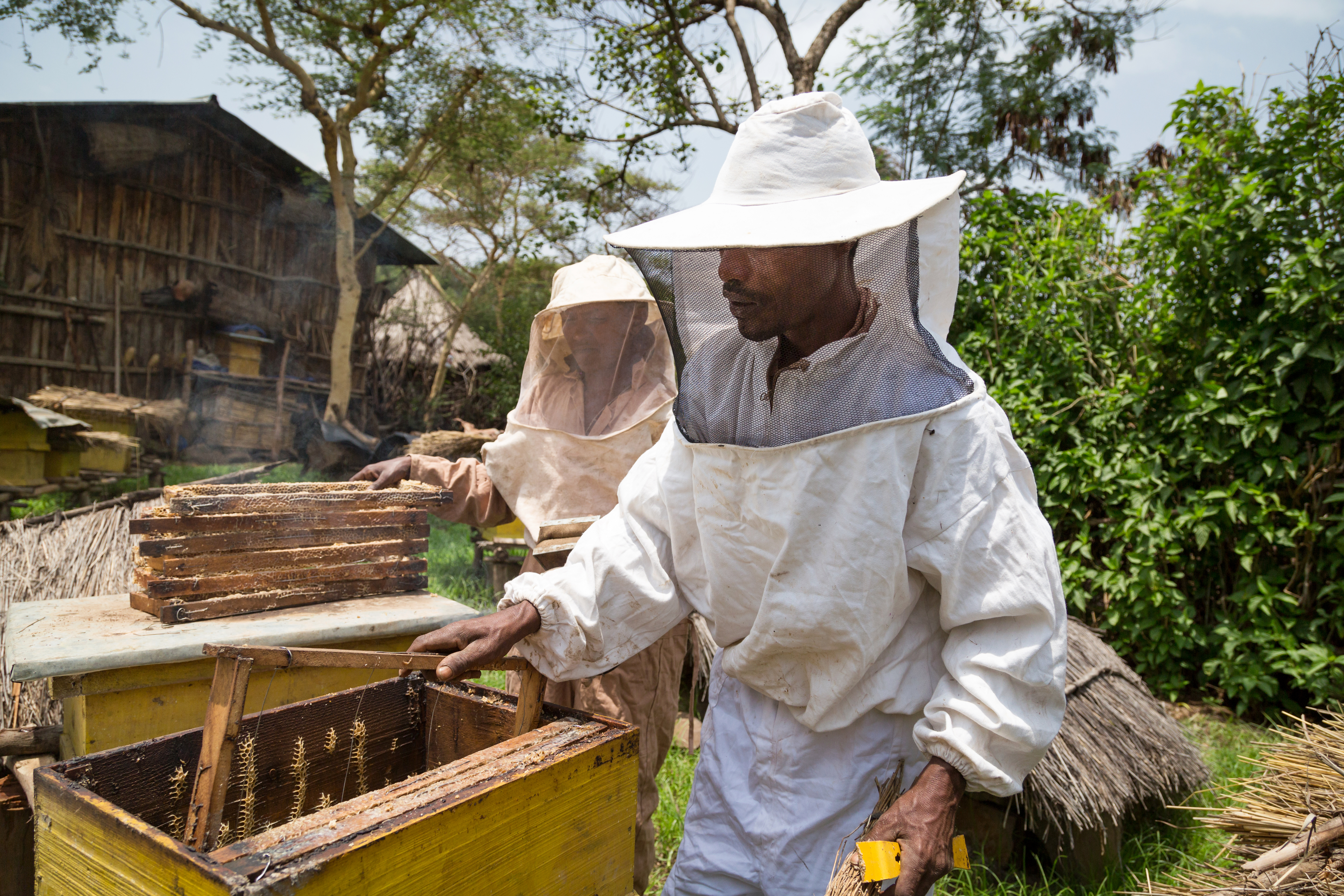Overview
Researchers
Lauren Falcao Bergquist
Assistant Professor in the Economics Department at the University of Michigan
Meredith Startz
Assistant Professor in the Department of Economics at Stanford University
- Country
- Ethiopia
- Timeline
- 07/01/2019 - 10/31/2024
- Constraints
- Input and Output Markets
- Technology Category
- Contracts, Crop Quality Measure
- Sample
- Pilot survey includes at least 100 beekeepers and 30 traders

Photo Credit: USAID Ethiopia | Kelley Lynch
This pilot investigates the barriers to producing and maintaining high product quality along a value chain, focusing on the honey sector and the markets and prices accessible to beekeepers. Ethiopia is the world’s tenth largest honey producer, with a long tradition of smallholder beekeeping that includes women and others with limited landholdings. Both the Ethiopian government and the private sector have a strong interest in growing honey exports. However, exports remain small, and some recent shipments have been rejected by importing countries due to low quality. As with many agricultural products in developing countries, Ethiopian honey passes through many hands on its way to consumers, including beekeepers, local traders, agricultural cooperatives, processing companies, and retailers. At each step of this value chain, participants must have the knowledge, resources, and incentives to meet quality standards. However, it can be challenging to provide appropriate incentives, in part because of the difficulty of verifying the quality of honey. Lab facilities are needed in order to measure quality indicators like sugar content, acidity and pesticide residues. The cost of the equipment needed to measure these indicators is not financially feasible for most individual Ethiopian honey processors, who in the past have had to send samples to international labs for testing at great expense.
Researchers first test the logistics and measure farmers’ willingness to have their honey sampled and quality-tested in a lab, and pilot a contract farming intervention to organize producers. The study also maps the specific actors engaged in the production and sale of honey, and documents prices at a range of transaction points. These research activities lay the groundwork for a future randomized evaluation, to measure the impacts of these interventions on farmer investment in quality, and the prices and exportability of the honey produced as a result.
This pilot is ongoing, and findings are forthcoming.